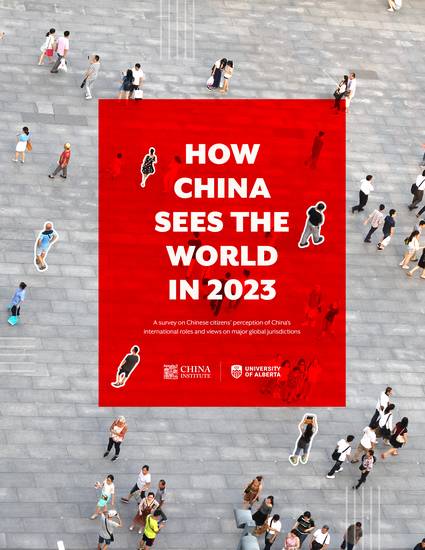
Other
How China Sees the World in 2023
(2023)
Abstract
The rising tension between China and Western nations in the 2020s has centered on China using its growing economic and political power to assert its influence worldwide, often contra to Western nations’ interests. For example, Western jurisdictions have repeatedly accused China of stealing and exporting potential dual-use technologies abroad. This has led to security and regulatory reviews of Chinese-based technology companies that have ties with the Communist Party of China (CPC). Western nations, including the Five-Eyes Alliance – consisting of the US, the UK, Australia, Canada, and New Zealand – have been critical of China’s domestic behaviour on human rights-based issues; they have viewed China’s close relations with Russia during the ongoing Russia-Ukraine conflict as problematic. Such tensions have led Western nations to consider China as a negotiating partner on select global issues, an economic and military competitor, and a systemic rival promoting alternative governance models, with a greater focus on the latter two.
While China’s rise as a major power in the 21st century has made it a key player in global affairs, one crucial aspect to further examine is its own citizens’ attitudes towards foreign jurisdictions. How Chinese citizens perceive the world has profound implications for China’s future behaviour domestically and abroad. While the CPC exhibits a monopoly over the political system, it nonetheless requires popular support and legitimacy of its public policies and conduct. The CPC emphasizes monitoring public opinion and conducting public opinion analysis. This indicates that the public’s support or dissatisfaction with China’s foreign policy and activities can translate to future support or dissatisfaction with the CPC and the state itself.
This report discusses the findings from the first iteration of the Chinese Citizens’ Global Perception Survey (CCGPS). CCGPS 2023 is an online and telephone national survey conducted by the authors of the report, in collaboration with a survey firm in mainland China, in the first quarter of 2023. It provides a demographically representative and statistically valid, candid account of how the Chinese general public view other nations and their relationships with China.
The CCGPS 2023 has notably examined mainland Chinese citizens’ perspectives on China’s current relations with global actors, including Australia, Canada, the EU, France, Germany, India, Japan, Russia, the UK, and the US. The report discusses the survey findings in five areas: (1) Chinese citizens’ general global perception; (2) China’s global roles; (3) foreign tourism, study, work, and emigration preferences; (4) Canada-China relations; and, (5) Chinese citizens’ sources and knowledge of global jurisdictions.
The report provides observations and insights into Chinese public opinion on global relations, and the factors shaping these perceptions. Moreover, it highlights critical nuances that provide a greater understanding of the complexities of Chinese public opinion. The report’s objective is to provide evidence to aid key stakeholders in developing targeted and considered strategies for engaging with China.
Keywords
- contemporary China,
- foreign relations,
- global peace and security leadership,
- international trade and investments,
- education,
- immigration,
- tourism,
- global social and economic governance,
- research and technology cooperation
Disciplines
Publication Date
May, 2023
Citation Information
Hasmath, R. (2023) How China Sees the World in 2023. Edmonton: The China Institute at the University of Alberta.
